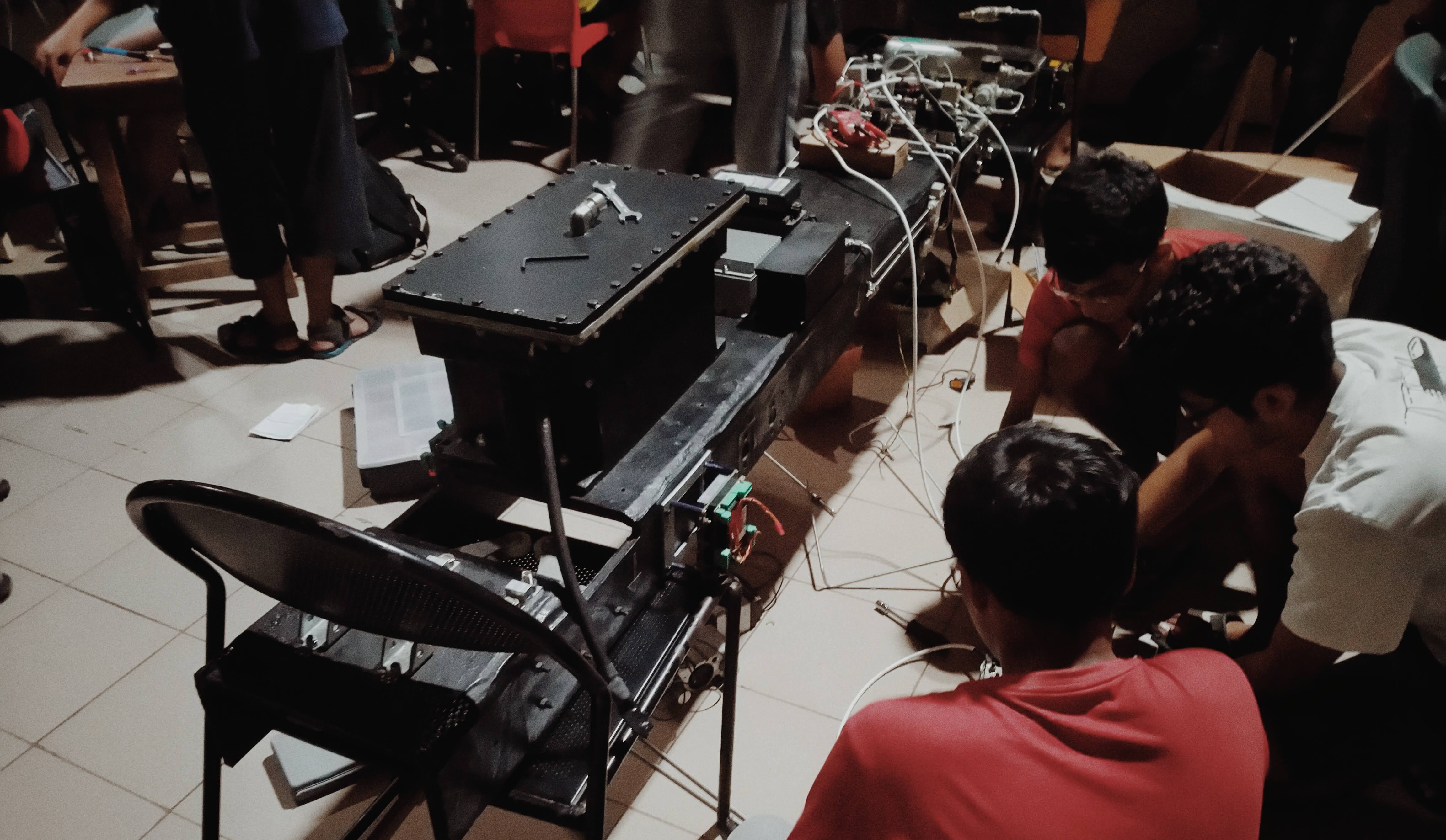Dr. Edamana Prasad is an Associate Professor in the Department of Chemistry. He is a recipient of the Young Faculty Recognition Award. He specialises in Photophysics of supramolecular assemblies. (Interview by Ranjani Srinivasan)
 Congratulations on receiving the Young Faculty Recognition Award! How does it feel, being recognised and given this honour?
Congratulations on receiving the Young Faculty Recognition Award! How does it feel, being recognised and given this honour?
I feel really happy but also more responsible. As you know, recognition always comes with responsibility. This reminds me of the necessity for better performance. People, in general, and the system, in specific, will anticipate better performance from my side. I am happy that I have passed this rigorous evaluation. Initially, I had applied because I met the criteria and did not really anticipate this outcome. But, after the interview, yes, I was satisfied and knew I had a good chance.
Could you enlighten us on your personal history?
I hail from Palakkad district, Kerala. Schooling was very close to home and till my post-graduation, I studied in Pattambi. And, mine was a joint family. I am very proud to include this wherever I go because it has become extremely rare these days. It helped me learn community living at a very early age and made me more receptive. This (receptivity), I think has helped me largely as a teacher. After my post graduation I moved to Trivandrum for my PhD at the National Laboratory for Chemistry. After that I received a post-doc offer from Texas. I also went in for the Alexander von Humboldt fellowship programme (Germany) for a year in between. After moving to Pennsylvania, I started applying back to India. I joined IIT Madras in 2006.
What was your student life like? Were you a first-bencher or a last-bencher?
Well, as a college student I was fascinated by philosophy. Chemistry was with me all along, but I would say, more like an academic requirement. I was more interested in philosophy. I have read a lot of books in those lines and now, I can relate whatever I read back then, largely to my professional life.
Yes, as a student I was obedient and the always-first-row kind as my parents were teachers. You see, there wasn’t much freedom as everyone in school knew my parents (laughs). But later on, in college I enjoyed more freedom. Even then, I was very regular with academics as a habit. Any unfinished piece of work made me nervous!
What are your other interests, apart from philosophy?
I like painting and watching movies – classic ones at that. It was becoming difficult for me to find time for books but now that I have stabilized my research and other activities, I shall be getting back to reading like before. Also, I enjoy playing football with my son. And, yoga is something I pursue with rigour because it makes me feel good.
Could you tell us what motivated you to take up teaching?
As, I have already told you, I was brought up in an environment where teaching seemed the natural instinct. My parents were teachers and so is my sister. So, it’s in the family. Also, I had fantastic teachers in school and college from whom I seek inspiration.
Actually, in my earlier days I was not intent on becoming a teacher but as I grew up I realized how rewarding student-teacher interactions can be. Especially, when a student returns to you after many years, it is a great feeling.
Also, I got the opportunity to teach while I was still a student. The parallel-college system in Kerala enabled me to teach when I was in college. I received a good response, so I knew this was what I wanted to do.
If you had to term someone a good teacher, what attributes would they possess?
Well, many people might disagree with my opinions on this but I would like to answer this from a learner’s point of view. Whatever the qualities of a teacher, ultimately, he/she should enable better learning. Aspects like thorough knowledge of the subject are important but if the learner is enabled to grasp the content and is inspired to learn more, I would call that quality teaching.
Can you recall some interesting experiences with students in your career as a teacher?
Well, there have been quite a few interesting incidents but one I can clearly recall is this. I was handling CY1001 (for B.Tech first years) for a class of around 200 students. And, in such a class it was obviously difficult for me to recognize faces. Apparently, there were some students from the previous class sitting in the last few rows of the room and this was brought to my notice by the others. Everybody expected a tense moment. But for some reason I still do not know, I just looked at them and asked, “Can I take class here?” Immediately, the whole class burst into fits of laughter and those students turned red. It is a moment to remember (laughs)!
What do you think are the major challenges faced by students these days?
First and foremost, motivation. I see that most of the students do not see a purpose in sitting in class and listening to lectures when all the material is readily available. Also, they think that certain courses do not serve any purpose considering their area of study. So, there is not much enthusiasm and hence little learning. Most students face a problem with connecting their learning process to their career goals. Grades are the only source of motivation in such cases and hence, not much is gained during the course, nor on the day before the exam.
Another thing is the excessive use of e-techniques. The brain has been tuned to the “click-click” mode and one’s attention span is greatly reduced. It is becoming difficult for students to sit through lectures and give a patient ear.
What would your advice be to all the students reading this conversation?
I once went for an interview to a school for selecting the best students to the science stream. I asked this student who came, “What would you like to be after 10 years?”. “I want to be happy!” – came the reply. I was really fascinated by this. The whole purpose of education is not to merely collect facts but to learn to balance one’s life, to train the mind to be pure, genuine and responding – to attain a balanced state. A balanced mind can propel your intellect and make you work better. I would like students to remember this at all times.



